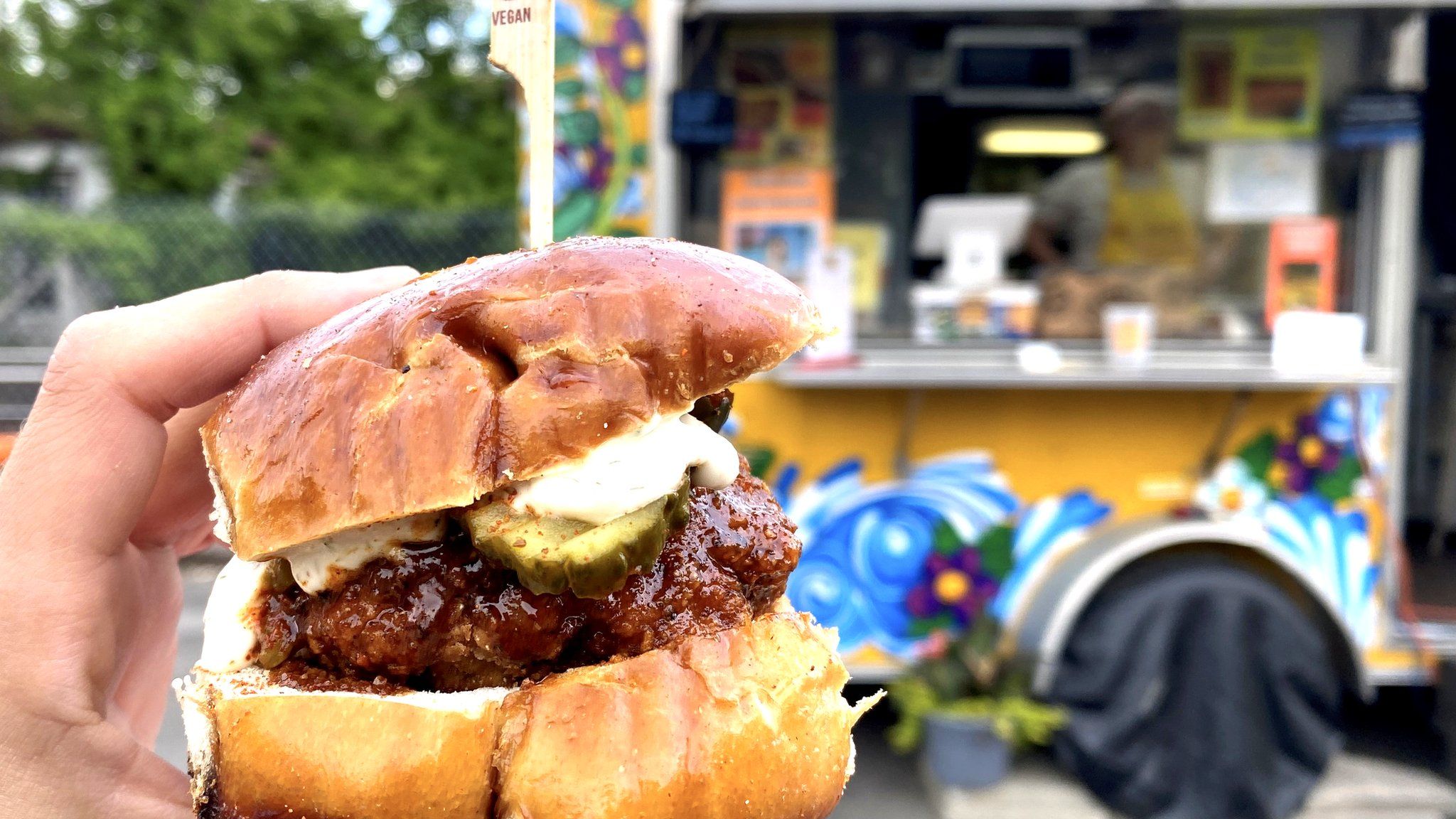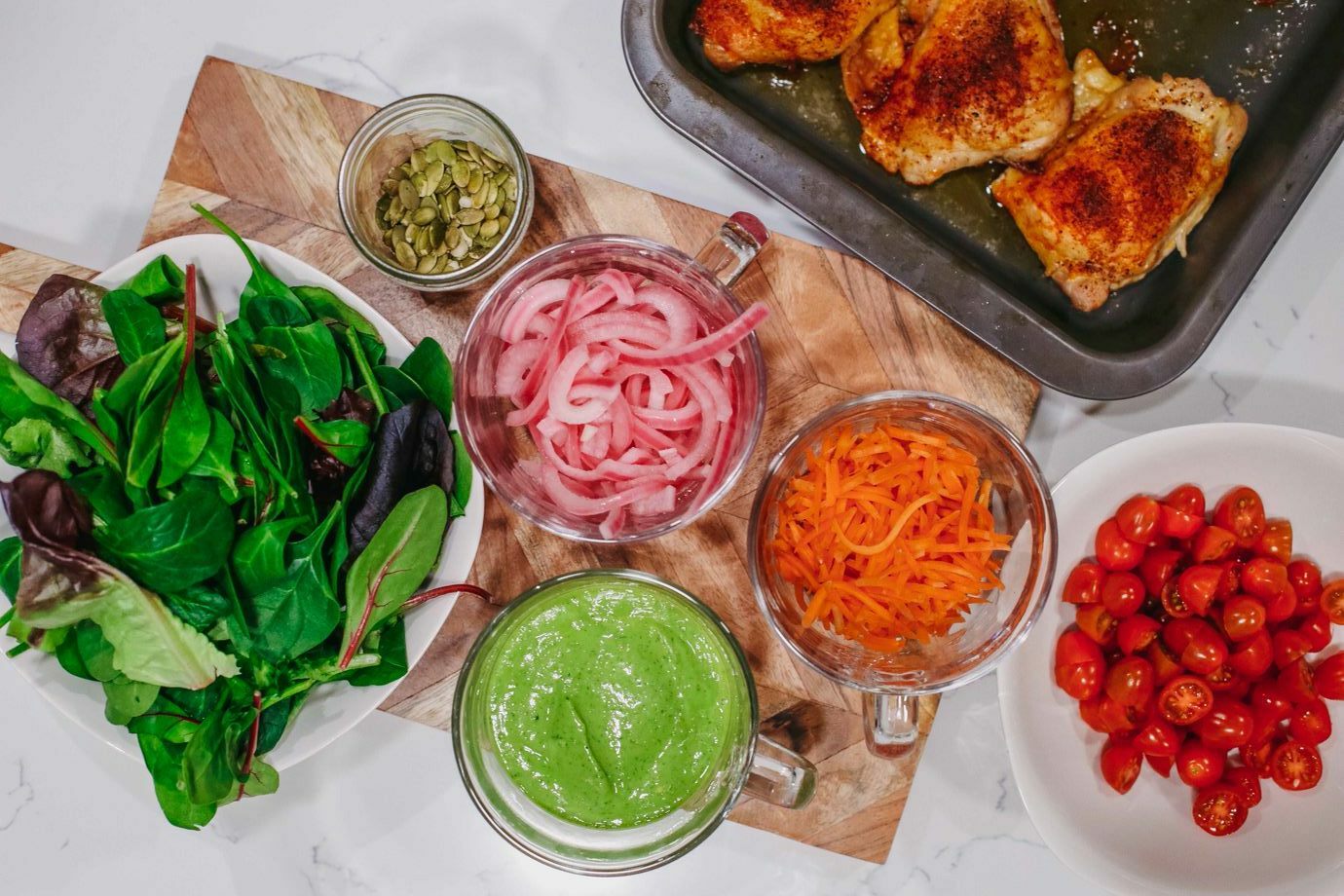Getty Images
By Christine RoTechnology of Business reporter
Meat-free steak and sausages seem to be everywhere these days. Perhaps you have tried one.
But did you like it? Was it as good as the real thing? If it left you underwhelmed then it could be down to one missing ingredient – animal fats.
Many firms are betting that finding a good alternative to animal fats will provide a breakthrough when it comes to the flavour of meat-free products.
One person who is evangelical about better fat is Max Jamilly, co-founder of London-based Hoxton Farms.
“All of the taste, the sizzle, the browning, comes from fat,” he enthuses.
Hoxton Farms is making animal fat, without the animals.
They start with just a few animal cells that are stored in a vat of liquid nitrogen.
Those cells are revived in an incubator, and cultured for around three weeks in a stirred tank bioreactor, essentially a laboratory mixer.
During that time, the cells are fed with a proprietary mixture of plant ingredients.
Eventually, out of a metal pipe that resembles a large syringe, will emerge a pale yellow, buttery substance: the fat.
Despite the company’s name, there’s not a farm animal in sight. And the lab is a more hygienic environment than many animal agriculture operations.
Christine Ro
Mr Jamilly believes that while the alternative meat world has made great strides with protein, it’s being held back by conventional fats.
In meat replacements these have included canola, palm, soy and sunflower oils.
The mainstay has been coconut oil but, compared to animal fat, this has a lower melting point, or the point at which fat turns from solid to liquid.
So during cooking, the oil in some alternative meats can melt away, leaving the end product without the juiciness of a real burger or steak.
If you’ve mashed your way through a vegan burger that started off juicy, but then turned to sawdust, the melting point may be the culprit.
Mr Jamilly and his fellow co-founder Ed Steele says their fat can counter that problem. As well as having a higher melting point, it can be easily dispersed through the product.
In contrast, some plant-based burgers might be studded with white specks of solid coconut oil that haven’t been distributed uniformly.
Compared to some alternative proteins using coconut oil, Mr Steele believes “the difference is that it’s juicy, not greasy”.
Melt & Marble
Using coconut and other oils has one advantage though – they are widely available and relatively cheap.
Hoxton Farms thinks it can match traditional oils in the coming years, but it will have to expand.
Read the full article here.





